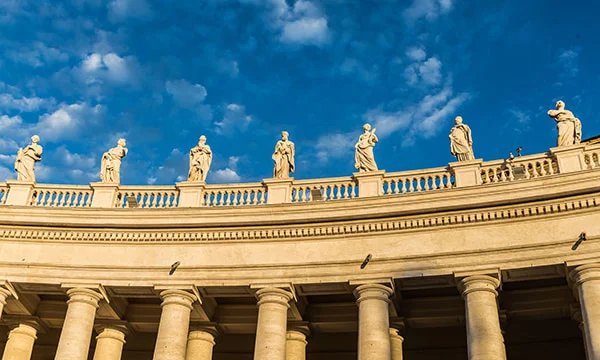Dear Brothers and Sisters,
1. Welcome! I cordially greet each of you, priests and lay people, who have gathered in Rome to spend some days reflecting on the Apostolic Letter Novo Millennio Ineunte and on the prospects that I outlined in it for the future of evangelization. I especially greet your Prelate, Bishop Javier Echevarría, who organized this meeting for the purpose of strengthening the Prelature's service to the particular Churches where its faithful are present.
You are here representing the components by which the Prelature is organically structured, that is, priests and lay faithful, men and women, headed by their own Prelate. This hierarchical nature of Opus Dei, established in the Apostolic Constitution by which I erected the Prelature (cf. Apost. Const. Ut Sit, 28 Nov. 1982), offers a starting point for pastoral considerations full of practical applications. First of all, I wish to emphasize that the membership of the lay faithful in their own particular Churches and in the Prelature, into which they are incorporated, enables the special mission of the Prelature to converge with the evangelizing efforts of each particular Church, as envisaged by the Second Vatican Council in desiring the figure of personal prelatures.
The organic way that priests and laity work together is one of those privileged areas where pastoral activity will take life and be strengthened, activity marked by that "new energy" (cf. Apost. Let. Novo Millennio Ineunte, no. 15) which has encouraged us all since the Great Jubilee. In this connection, we should recall the importance of that "spirituality of communion" stressed by the Apostolic Letter (cf. ibid., nos. 42-43).
2. The laity, inasmuch as they are Christians, are involved in carrying out a missionary apostolate. Their specific skills in various human activities are, first of all, an instrument entrusted to them by God to enable "the proclamation of Christ to reach people, mould communities, and have a deep and incisive influence in bringing Gospel values to bear in society and culture" (ibid., no. 29). They should be encouraged, then, to put their knowledge actively at the service of the "new frontiers" that are emerging as so many challenges for the Church's saving presence in the world.
It will be their direct witness in all these fields that will show how the highest human values only achieve their fullness in Christ. And their apostolic zeal, fraternal friendship and supportive charity will enable them to turn daily social relationships into opportunities for awakening in others that thirst for truth which is the first condition for the saving encounter with Christ.
Priests, on their part, exercise an irreplaceable primary function: that of helping souls, one by one, through the sacraments, preaching and spiritual direction to open themselves to the gift of grace. A spirituality of communion will make the most of the roles of each ecclesial element.
3. I urge you, dear friends, in all your work not to forget the central point of the Jubilee experience: the encounter with Christ. The Jubilee was a continuous, unforgettable contemplation of the face of Christ, the eternal Son, God and Man, crucified and risen. We sought him in the pilgrimage towards the Door that opens the way to heaven for man. We experienced his sweetness in the very human and divine act of forgiving the sinner. We saw him as a brother to all men and women, restored to unity in the gift of saving love. The thirst for spirituality felt in our society can only be quenched by Christ.
"No, we shall not be saved by a formula, but by a Person, and the assurance which he gives us: I am with you!" (Novo Millennio Ineunte, no. 29). For the world, for all our brothers and sisters, we Christians must open the way that leads to Christ. "Your face, O Lord, do I seek" (Ps 27 [26]: 8). This aspiration was often on the lips of Blessed Josemaría, a man who thirsted for God and was therefore a great apostle. He wrote: "In intentions, may Jesus be our end; in affections, our love; in speech, our theme; in actions, our model" (The Way, 271).
4. It is time to put aside all fear and pursue daring apostolic goals. Duc in altum! (Lk 5: 4): Christ's invitation spurs us to put out into the deep and to nurture ambitious dreams of personal holiness and apostolic fruitfulness. The apostolate always overflows from one's interior life. Certainly, it is also action, but action sustained by love. And the source of love always lies in a person's deepest dimension, where the voice of Christ is heard inviting us to put out into the deep with him. May each of you welcome this invitation of Christ and respond to it with fresh generosity every day. With this wish, as I entrust your commitment to prayer, work and witness to Mary's intercession, I affectionately give you my Blessing.
